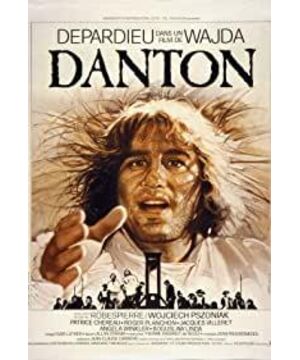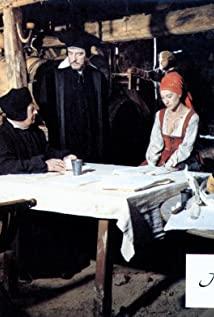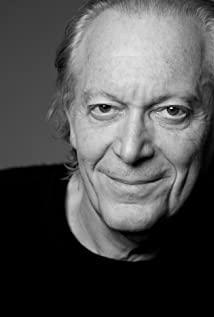Eh... Another article to deal with the homework of the elective course... It's really enough to count the number of words... Let's take a look at it, teacher... It's good to pass. I hope it's not too cold...
Freedom seems to be a word that goes deep into the bones of the French. Since more than 200 years ago, when freedom awakened in the depths of the French people's hearts and cried out for "natural rights", the fascination with freedom and the feeling of cherishing have been deeply rooted in their emotional core. Freedom guides the people, summons the people... No matter what era, as long as the banner of freedom is used as a banner, it will surely mobilize the boiling blood of the French people, and even risk their lives. But precisely because of this, the power of this word often makes people who incarnate "people's freedom leaders" easily fall into confusion and go astray. In the name of defending freedom, the so-called democracy is actually a yoke for the people. I don't know it myself. This is the beauty of freedom, but also its horror.
Free, free. This word in French culture is not just freedom in the pure sense. Freedom, freedom from bondage and interference... these are not enough to explain what freedom is all about. "Freedom" for the French is a concept tied to romantic fanaticism and idealism by the French Revolution. So the power of freedom can be imagined, and it is no exaggeration to describe it as a beast, because when it dispatches people who are infatuated with her dazzling eyes, these people are really like a group of stupid guys who recklessly smash everything and try to Use madness to express your undying allegiance to this lofty belief.
Below I would like to further discuss the meaning of freedom for the French through a film that truly reflects the current situation in France that has been ignited by this "in the name of freedom".
Danton, the Polish director's film, looks at it all from a French perspective. The director's fiery passion unleashed in a turbulent and dire situation is very well done. And including the French people's almost worshipping feelings for freedom, their unscrupulous or reckless impulses in order to practice freedom, and their stubbornness when being fooled by authority disguised as freedom... Looking back at this history, maybe we It's too ludicrous to think that these revolutionaries have unexpectedly trampled on this hard-earned freedom after taking on the revered role of defenders and guardians of freedom. But if we think so, it is because we understand freedom too simply. As mentioned earlier, in the minds of French people who have been baptized in the Great Revolution, the word freedom is a composite product of romantic fanaticism and idealism, and it has been sanctified as a synonym for all beautiful pursuits. It is not difficult to understand why Voltaire uttered the bold statement "I disagree with you, but I will defend your right to express it to the death." It can be seen that freedom has made him not afraid, and he has the spirit of "giving up one's life for righteousness" as Mencius said. It is precisely because of all the good things attached to it that freedom carries and refers to, it has become an omnipotent yearning, and the French people still think it is a blind act like a firefly. A supreme honor. Dedication to the cause of freedom is equivalent to devotion to ideals, devotion to beliefs. Wouldn't that be an intoxicating way? Take your career to this height, I believe no one will refuse.
Returning to the film, we can carefully analyze why the French, driven by the Revolution, were so radical towards freedom that for a period of time (the one shown in the film when the Jacobins were internally divided - 1793) March/April 2019) can become intimidating and have to rely on it to survive.
The film "Danton" shows the suffocating and terrifying period in French history caused by the internal divisions of the Jacobins after the victory of the revolution. The protagonists of the film are Danton and Robespierre, who are both partners fighting for democracy and freedom, but because of the different interests to be protected, they eventually become sacrifices to the revolution one after another. Danton wanted to safeguard the interests of the people he represented, while Robespierre wanted to safeguard the interests of the other camp. In the movie, Robespierre often has a cold face and pale complexion, as if a body that is about to be unable to bear the heavy ideal pursuit is very weak. In terms of life style, his hard work and self-discipline are indeed impeccably harsh. He is well-deserved to be called "the unsullied man". However, this ultimate "pure" way of life is not what the broad masses of the people who ruled by violent feudal dynasties at the expense of sacrifice were envisioned. Robespierre forgot individual liberty in espousing the common ideal of liberty. It frees all and binds all with a new yoke of power. The Public Security Committee headed by Robespierre, in order to suppress revolutionary riots and crack down on speculators, carried out a policy of terror, which caused people to panic because of its wide range of attacks. The blood on the guillotine is always wet. Unlike Robespierre, Danton revels in the luxury of individual life. He rebuked others with a sarcastic tone in the movie: "If you regard poverty as a virtue of the revolution, join Robespierre." He spread his views flamboyantly, printed brochures in newspapers, did not hide from those who came to arrest him, fought hard in court, and even in prison, treated him like a charismatic star. Supporters waved. Obviously, the public's support for Dandong has swelled to the brink of eruption. The people of Paris called for Dandong to come to power, and the Public Security Committee could not keep the peace that was surging and floating at the cost of terror. Years of friendship with Robespierre and his lifelong ideal of freedom did not become Dandong's life-saving straw. Dandong was finally sent to the guillotine by the people's court he personally established. The moment Dandong's head fell to the ground, he covered his head with a white cloth, like a shroud. Five months later, he and Dandong both died on the guillotine during the French Revolution.
The interpretation of the film may be exaggerated and dramatic, but this history deserves our rational treatment, especially what we have gained after the revolution. Can such gains or victory be equal to the tragic sacrifices made during the revolution?
Liberty, in my opinion, is a fickle and cunning thing, acting as a righteous and shining leader in times of revolution, when emotions stifle reason, and as a gentle and loving comforter in times of peace, scarred, decadent, and restless. However, once they touch the spark of freedom, no one can forget their desire for her. Through the film we can see that any revolution in any era is a tool to wash away the inherent social order, just like the blood that washes away the guillotine, it must be cruel and thorough. After walking on the road opened by revolution, freedom will inevitably become a tool for reconstructing power and despotism. After all the new order is established, she will continue to maintain the charming appearance in everyone's heart. No one is willing to expose the ugliness of the name of freedom, because once such a realization will lead to the collapse of belief and deeply hurt oneself. And these romantic and elegant French people can only bow down in front of the free and colorful skirts one after another, stepping over countless corpses, in order to see this beautiful face that covers endless sins. I know it's embarrassing, but I have to agree.
From a website that broadcasts news, I learned that France is the country with the most frequent strikes in the world, and it is difficult to count the large and small strikes. Although the social and political life of contemporary France is dominated by activities that reflect the principle of openness, such as public voting, plenary voting, and open debate, the French people's enthusiasm for strikes has not diminished. From the perspective of cultural psychology, this has an undeniable connection with the seeds of freedom planted by the French Revolution. For many years, this spiritual incarnation of freedom in exchange for bloody violence has been rooted in the minds of every generation of French people as a tradition. Doubting everything, denying everything, breaking everything, destroying everything has become an epistemologically insurmountable depression, and the French have naturally swaggered into it, and it seems to be working. Such a culture creates a contrast or a generation gap in understanding between them and other ethnic groups. But that's not a bad thing, and while life has been bumpy and bumpy in the small, the French have never lacked the joy of protesting in the name of freedom, and overall it's good. In this way, freedom, a word with far-reaching meaning that has accompanied French culture along the way, has found its position in the new historical context and continues to lead her people to the future.
Cowsumy 2010-12-3
View more about Danton reviews











